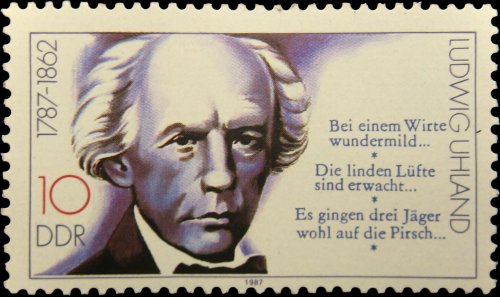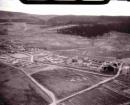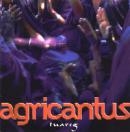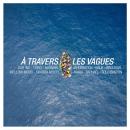ɣur-i yiwen umeddakʷel
Am netta ur ufiɣ ara
Deg iberdan m’ara nleḥḥu
ɣer tama-w i d-iteddu
Ur yettixiṛ ara
Deg yiḍ m’ara d-neffeɣ akken
Nettɣummu s yiwen ubeṛnus
Mi ɣ-id-walan yeɛdawen
Qqaren-as widin d atmaten
Am iḍudan ufus
Yiwen wass i yekker umennuɣ
Nuzzel d imezwura
Ansi ɣ-d-kkan yeɛdawen
Nqubel-iten am yizmawen
Ur nettwexxiṛ ara
Tṛuḥ-ed taṛeṣṣaṣt s waffug
Ur ẓriɣ ɣur-i ɣur-es
Tḥuza-t-id deg yedmaren
Walaɣ-t yeɣli f yeblaḍen
Tasa-w tebḍa fell-as
Yeẓẓel-ed afus-is ɣur-i
Mi la t-ttmuquleɣ
Qim a gma ma d nekk ḥareɣ
Ass-en f tmurt ar k-ǧǧeɣ
Ttaṛ-ik ar t-id rreɣ
ɣur-i yiwen umeddaʷel
Am netta ur ufiɣ ara
Deg iberdan m’ara nleḥḥu
ɣer tama-w i d-iteddu,
Wer t-ttettuɣ ara.
Am netta ur ufiɣ ara
Deg iberdan m’ara nleḥḥu
ɣer tama-w i d-iteddu
Ur yettixiṛ ara
Deg yiḍ m’ara d-neffeɣ akken
Nettɣummu s yiwen ubeṛnus
Mi ɣ-id-walan yeɛdawen
Qqaren-as widin d atmaten
Am iḍudan ufus
Yiwen wass i yekker umennuɣ
Nuzzel d imezwura
Ansi ɣ-d-kkan yeɛdawen
Nqubel-iten am yizmawen
Ur nettwexxiṛ ara
Tṛuḥ-ed taṛeṣṣaṣt s waffug
Ur ẓriɣ ɣur-i ɣur-es
Tḥuza-t-id deg yedmaren
Walaɣ-t yeɣli f yeblaḍen
Tasa-w tebḍa fell-as
Yeẓẓel-ed afus-is ɣur-i
Mi la t-ttmuquleɣ
Qim a gma ma d nekk ḥareɣ
Ass-en f tmurt ar k-ǧǧeɣ
Ttaṛ-ik ar t-id rreɣ
ɣur-i yiwen umeddaʷel
Am netta ur ufiɣ ara
Deg iberdan m’ara nleḥḥu
ɣer tama-w i d-iteddu,
Wer t-ttettuɣ ara.
envoyé par Riccardo Venturi - 8/9/2008 - 16:46
Langue: italien
IL COMPAGNO
Avevo un compagno
Come lui non se ne trovano
Quando marciavamo insieme
Camminava al mio fianco.
Con lo stesso passo
Se uscivamo nella notte
Sotto lo stesso mantello
Quando il nemico ci vedeva
Ci scambiava per fratelli
Inseparabili come le dita di una mano
Un giorno, scoppiata la battaglia
Corremmo in mezzo ai primi
erso dove veniva il nemico
Li assalimmo come leoni
Senza indietreggiare
Partì un proiettile in volo
Non so se diretto a me o a lui
Lo colpì in pieno petto
Lo vidi cadere al suolo
Il mio cuore si spezzò
Allungò la mano verso di me
Mentre lo guardavo
Riposa in pace, fratello io non vedo l’ora,
Da quel giorno che ti ho lasciato a terra,
Di vendicarti
Avevo un compagno
Come lui non se ne trovano
Quando marciavamo insieme
Camminava al mio fianco,
Non lo dimenticherò mai.
Avevo un compagno
Come lui non se ne trovano
Quando marciavamo insieme
Camminava al mio fianco.
Con lo stesso passo
Se uscivamo nella notte
Sotto lo stesso mantello
Quando il nemico ci vedeva
Ci scambiava per fratelli
Inseparabili come le dita di una mano
Un giorno, scoppiata la battaglia
Corremmo in mezzo ai primi
erso dove veniva il nemico
Li assalimmo come leoni
Senza indietreggiare
Partì un proiettile in volo
Non so se diretto a me o a lui
Lo colpì in pieno petto
Lo vidi cadere al suolo
Il mio cuore si spezzò
Allungò la mano verso di me
Mentre lo guardavo
Riposa in pace, fratello io non vedo l’ora,
Da quel giorno che ti ho lasciato a terra,
Di vendicarti
Avevo un compagno
Come lui non se ne trovano
Quando marciavamo insieme
Camminava al mio fianco,
Non lo dimenticherò mai.
envoyé par Riccardo Venturi - 8/9/2008 - 17:11
Langue: allemand
Ich hatt' einen Kameraden
La poesia originale di Ludwig Uhland (1809)
Ludwig Uhland's original poem (1809)
Originaldichtung von Ludwig Uhland (1809)

Questa poesia di Uhland, nota anche come "Der gute Kamerad", fu scritta nel 1809 ed in seguito musicata dal compositore tedesco Friedrich Silcher nel 1825 (sull'aria di un'antica canzone popolare, "Ein schwarzbraunes Mädchen hat ein'n Feldjäger lieb"). La poesia, o Lied di Uhland gli era stata ispirata dai combattenti tirolesi per la libertà e dalla loro lotta contro Napoleone. Ancora durante la I guerra mondiale era talmente popolare da essere parodiata dai soldati tedeschi come "Ich hatt' mal Marmelade", riflettendo così la scarsità delle razioni e l'autentica fame delle truppe. Sebbene scritta assai prima, questa poesia/canzone è spesso citata o eseguita in memoria dei veterani delle due guerre mondiali, e nel giorno di memoria tedesco per i caduti delle guerre (il Volkstrauertag).
This Uhland poem—also known as "Der gute Kamerad"—was written in 1809 and later set to music by the German composer Friedrich Silcher in 1825 (using an old folk melody, "Ein schwarzbraunes Mädchen hat ein'n Feldjäger lieb"). Uhland's poem (or Lied) was inspired by the Tyrolian freedom fighters and their struggle against Napoleon. It was popular enough during World War I to be parodied as "Ich hatt' mal Marmelade," reflecting the soldiers' hunger and lack of rations. Although it was written much earlier, the poem/song is often quoted/performed in memory of the veterans of the two world wars and for the German veterans day observance known as Volkstrauertag (on the third Sunday in November).
La poesia originale di Ludwig Uhland (1809)
Ludwig Uhland's original poem (1809)
Originaldichtung von Ludwig Uhland (1809)

Ludwig Uhland (1787-1862) in un francobollo della DDR del 1987.
Questa poesia di Uhland, nota anche come "Der gute Kamerad", fu scritta nel 1809 ed in seguito musicata dal compositore tedesco Friedrich Silcher nel 1825 (sull'aria di un'antica canzone popolare, "Ein schwarzbraunes Mädchen hat ein'n Feldjäger lieb"). La poesia, o Lied di Uhland gli era stata ispirata dai combattenti tirolesi per la libertà e dalla loro lotta contro Napoleone. Ancora durante la I guerra mondiale era talmente popolare da essere parodiata dai soldati tedeschi come "Ich hatt' mal Marmelade", riflettendo così la scarsità delle razioni e l'autentica fame delle truppe. Sebbene scritta assai prima, questa poesia/canzone è spesso citata o eseguita in memoria dei veterani delle due guerre mondiali, e nel giorno di memoria tedesco per i caduti delle guerre (il Volkstrauertag).
This Uhland poem—also known as "Der gute Kamerad"—was written in 1809 and later set to music by the German composer Friedrich Silcher in 1825 (using an old folk melody, "Ein schwarzbraunes Mädchen hat ein'n Feldjäger lieb"). Uhland's poem (or Lied) was inspired by the Tyrolian freedom fighters and their struggle against Napoleon. It was popular enough during World War I to be parodied as "Ich hatt' mal Marmelade," reflecting the soldiers' hunger and lack of rations. Although it was written much earlier, the poem/song is often quoted/performed in memory of the veterans of the two world wars and for the German veterans day observance known as Volkstrauertag (on the third Sunday in November).
Ich hatt' einen Kameraden,
Einen bessern findst du nit.
Die Trommel schlug zum Streite,
Er ging an meiner Seite
In gleichem Schritt und Tritt.
Eine Kugel kam geflogen:
Gilt's mir oder gilt es dir?
Ihn hat es weggerissen,
Er liegt vor meinen Füßen
Als wär's ein Stück von mir.
Will mir die Hand noch reichen,
Derweil ich eben lad'.
"Kann dir die Hand nicht geben,
Bleib du im ew'gen Leben
Mein guter Kamerad!"
Einen bessern findst du nit.
Die Trommel schlug zum Streite,
Er ging an meiner Seite
In gleichem Schritt und Tritt.
Eine Kugel kam geflogen:
Gilt's mir oder gilt es dir?
Ihn hat es weggerissen,
Er liegt vor meinen Füßen
Als wär's ein Stück von mir.
Will mir die Hand noch reichen,
Derweil ich eben lad'.
"Kann dir die Hand nicht geben,
Bleib du im ew'gen Leben
Mein guter Kamerad!"
envoyé par Riccardo Venturi - 8/9/2008 - 21:34
Langue: anglais
Una versione inglese (di Frank Petersohn) della poesia di Uhland
An English version of Uhland's poem by Frank Petersohn
An English version of Uhland's poem by Frank Petersohn
I HAD A COMRADE
In battle he was my comrade,
None better I have had.
The drum called us to fight,
He always on my right,
In step, through good and bad.
A bullet it flew towards us,
For him or meant for me?
His life from mine it tore,
At my feet a piece of gore,
As if a part of me.
His hand reached up to hold mine.
I must re-load my gun.
"My friend, I cannot ease your pain,
In life eternal we'll meet again,
And walk once more as one."
In battle he was my comrade,
None better I have had.
The drum called us to fight,
He always on my right,
In step, through good and bad.
A bullet it flew towards us,
For him or meant for me?
His life from mine it tore,
At my feet a piece of gore,
As if a part of me.
His hand reached up to hold mine.
I must re-load my gun.
"My friend, I cannot ease your pain,
In life eternal we'll meet again,
And walk once more as one."
envoyé par Riccardo Venturi - 8/9/2008 - 21:45
Langue: anglais
Ulteriore versione inglese della poesia di Uhland, di Arthur Kevess
Alternative English version of Uhland's poem, by Arthur Kevess
Alternative English version of Uhland's poem, by Arthur Kevess
I HAD ONE FAITHFUL COMRADE
I had one faithful comrade
'Ere we heard the trumpet's call,
And we pledged our hearts forever
In battle joined together
To beat the foe or fall.
A musket shot came screaming
To seal his fate or mine
Right at my feet he stumbled,
And friendship's shrine it crumbled
Around that friend of mine.
His hand is blindly seeking
The clasp I cannot give
For duty calls me onward
Farewell my dying comrade,
Our love shall ever live.
I had one faithful comrade
'Ere we heard the trumpet's call,
And we pledged our hearts forever
In battle joined together
To beat the foe or fall.
A musket shot came screaming
To seal his fate or mine
Right at my feet he stumbled,
And friendship's shrine it crumbled
Around that friend of mine.
His hand is blindly seeking
The clasp I cannot give
For duty calls me onward
Farewell my dying comrade,
Our love shall ever live.
envoyé par Riccardo Venturi - 8/9/2008 - 21:46
×
![]()






Poesia di Ludwig Uhland (1809)]
Traduzione in cabilo (berbero) di Laimèche Ali
Musica originale di Laimèche Ali, poi rielaborata da Ferhat Mehenni
Album: "Canti rivoluzionari di Cabilia" [1979]
A poem by Ludwig Uhland (1809)
Kabylian version by Laimèche Ali
Original music by Laimèche Ali, then re-arranged by Ferhat Mehenni
Album: "Revolutionary Songs from Kabylia" [1979]
"La sua infanzia ha coinciso con il periodo della guerra anticoloniale, nella quale il padre, resistente contro i Francesi, trovò la morte nel 1961. È solo dopo l’indipendenza, all’età di 12 anni che comincia a frequentare la scuola, a Tabouda, a otto chilometri da casa. Andrà poi in collegio a Chateauneuf e a Larba n At Yiraten, dove comincia ad appassionarsi alla musica. «Se sono approdato alla musica lo devo all’amore per Cherif Kheddam e anche ad una vocazione familiare».
Ferhat ricorda che un giorno suo padre aveva cantato una canzone senza accompagnamento strumentale davanti a tutto il villaggio. Sempre da lui aveva appreso la canzone Ameddakʷel di Laimèche Ali, la versione in berbero
del canto per i caduti di guerra Ich hatte einen Kameraden di Uhland, uno dei primi canti berbero-nazionalisti, che entrerà a far parte del suo repertorio."